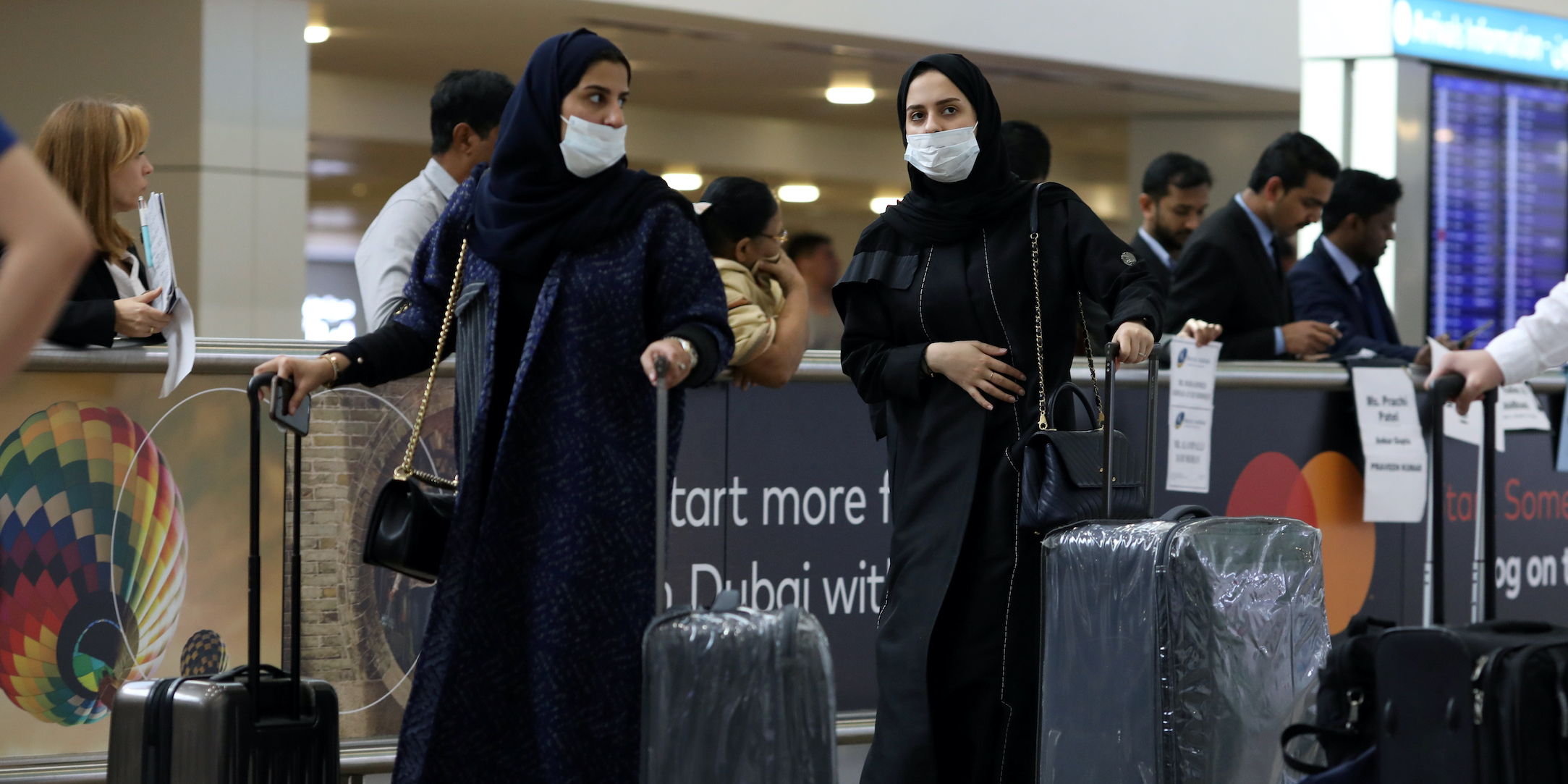- The COVID-19 virus has been found in 30 countries across the world, and the World Health Organization is calling the spread “worrisome.”
- An expert told Business Insider that many countries don’t have resources for infectious disease, and many lack an outbreak preparedness plan.
- Containment may no longer be effective to tackle the novel virus as it continues to spread, especially to countries who don’t have the capacity to screen for and isolate those who have it.
- Visit Business Insider’s homepage for more stories.
While China is reporting a dip in new COVID-19 infections, cases of the novel virus are still being discovered in new countries, many of which have no ties to the epicenter of the outbreak.
Four people died from the virus in Iran in the past few days, a foreigner was diagnosed with it in Egypt, and the first case of the virus was just discovered in Lebanon, making it the 30th country to report cases of COVID-19.
The cases in Iran were not linked to Wuhan, and the case in Lebanon was linked to cases in Iran, suggesting that the virus is spreading between people with no ties to the origin of the outbreak. The World Health Organization has said that trend is worrisome and suggests that virus may spread broadly.
The number of infections outside of mainland China, where the virus originated is growing and currently stands at over 1,000, and 12 people have died in other countries.
While the approach so far has been containment, it's not clear if that will continue to work, or if every country is capable of containing and treating those who may fall ill with COVID-19.
Some countries are 'strapped for infectious disease resources'
Emily Ricotta, a research fellow at the National Institute of Allergy and Infectious Diseases told Business Insider that, "Many places don't already have a preparedness plan for outbreaks."
Additionally, even if they get funding to tackle the issue, they may not have the capacity to actually screen for or isolate confirmed cases. She also added that in general, countries tend to be "strapped for infectious disease resources."
Ricotta said that was the case with Liberia during the Ebola crisis in 2014. While the country received funds to tackle the outbreak, there wasn't the capacity to actually use those funds. The country lacked the necessary equipment and personnel to implement necessary protocols, and international organizations stepped in to set up clinics.
The World Health Organization called the outbreak a global health emergency three weeks ago, but it has not labeled the outbreak as a pandemic yet, since most cases of human-to-human transmission have occurred only in China. In order for an outbreak to be considered a pandemic, there has to be "sustained" human-to-human transmission in multiple locations.
Sharon Lewis, director of the Peter Doherty Institute for Infection and Immunity in Melbourne, Australia, told Business Insider it's hard to tell if there is any specific place that could become a hotbed for the virus, since the approach to curtailing the spread so far has been containment.
Ricotta noted, however, "There gets to be a point where containment is not going to work."
Some areas could be hit harder than others
Other experts suggest there maybe a criteria for determining if a particular location could potentially exacerbate the spread of the virus.
Keiji Fukuda, the director and clinical professor at the School of Public Health at The University of Hong Kong, told Business Insider that it is anticipated that crowded settings could see a significant percentage of residents catching the virus.
Robert Kim-Farley, a professor at UCLA Fielding School of Public Health, told Business Insider his concern with the spread of the virus is if it reaches poorer countries that are densely populated, or don't have the resources to screen for and treat people who contract the novel virus.
"My greatest concern is not here in the United States, where we have a robust health care system," Kim-Farley said.
He also add that there are a few things that can make another location particularly susceptible to an outbreak. Places with dense populations make it easier for the virus to spread; a poor public health system may also make it difficult to screen for the virus and then treat people; as well as if there's a lack of resources to properly isolate and quarantine those who are infected or suspected of being infected.
Lewis added that low and middle income countries could lack the resources and laboratories to test for the virus, which could increase the likelihood for the virus to spread. If you can't detect that someone has the virus early on and isolate them, they could pass it on to many more people.
"Any confined community, where you have a lot of people close together and the virus enters into that, it could be problematic," Kim-Farley said.
What happens next is hard to predict
Kim-Farley and other experts have said there are a few possibilities for how the outbreak plays out in the end. Kim-Farley said, this could go away like the SARS virus, or it could spread to other countries, including developing countries and become endemic like the flu.
COVID-19 has already killed and infected more people than SARS did when it was an outbreak in 2002. While SARS killed 774 people and infected 8,098 in about 9 months, COVID-19 has killed over 2,000 people and infected more than 76,000 in less than 3 months. While there is still a lot to be learned about how the virus is transmitted, it appears to be easier to transmit than SARS, many experts believe it spreads through droplets.
Kim-Farley said if it does spread to other countries, we could see it "seeding" in more places.
Fukuda also said how fast the virus spreads within that population is "highly variable." He explained that it appears this virus impacts older people more then those who are young, so if the population is young and healthy then the impact of the virus may be minimal but, "if the population is young but malnourished, then severe disease might occur much more frequently in comparison with health young groups."
Kim-Farley added that the world is currently on alert to the possible threat of the virus.
"As compared to Wuhan, where in a sense it blindside people, the world is on alert," he said.
Countries and communities can begin to take measures to limit the spread of the virus, but as more cases begin to appear in countries across the world a new approach beyond containment may be necessary.
WHO has already said they're running out of time to contain this virus.
"We still have a chance to contain it. But while doing that, we have to prepare at the same time for any eventualities, because this outbreak could go any direction. It could even be messy," WHO Director-General Tedros Adhanom Ghebreyesus said.
- Read more:
- While the world focuses on the coronavirus, people in China with other illnesses may pay a price long after the outbreak ends
- The coronavirus outbreak is reaching a global tipping point, and the window to contain it is 'narrowing,' according to WHO
- A Chinese film director and 3 family members died from the novel coronavirus after they self-quarantined in their home
- The coronavirus death toll has reached 2,250, with more than 76,000 infected. Here's everything we know about the outbreak.

